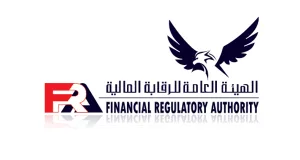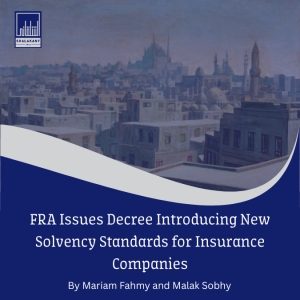As part of the Egyptian government’s ongoing effort to combat bureaucracy and to incentivize national and foreign investors, the executive regulations of Law no. 17 of 2019 on the Reconciliation of Construction Violations (the “Law”) were amended by virtue of the Prime Ministerial Decree No. 800 of 2020 (the “Decree”).
The Decree provided some considerable financial amendments including but not limited to deducting any fine payments already made concerning the violation from the final settlement amount and the possibility for the applicant to pay the settlement amount in installments. Further, as a part of the amendments concerning the reconciliation process, the Decree integrated an appeal process for the reconciliation refusals including appeals on the settlement amounts. Finally, the composition of the technical committees is altered to contain more engineers, which are now required to make their decisions and present them to the competent authority within three rather than four months.
We will briefly delve into the key highlights and main provisions of the Decree.
The Creation of a Committee to Handle Reconciliation Requests
The Decree provides the formation of one or more technical committee(s) (the “Committee”) within the competent administrative authority in order to handle requests pertaining to the settlement and reconciliation of construction violations. The said Committee is presided by a consultant engineer specialized in structural engineering and the membership of: (i) two engineers admitted to the Egyptian Engineers Syndicate, one of whom shall be specialized in structural engineering and the other in architectural engineering, both having a minimum of 5 years experience, and (ii) a representative of the Ministry of the Interior nominated by the competent civil protection department authority.
The Reconciliation Process
The applicant shall submit the request for reconciliation to the competent administrative authority using the designated template in the Decree along with the required documents (such as the ID of the applicant, the document outlining the capacity of the applicant in accordance with the violations subject of the reconciliation and the evidence (i.e., documents) that the violation subject of the reconciliation occurred prior to the issuance of the Law).
The application is then referred to the technical secretariat of the Committee which shall first review it and ensure, within two weeks, that the application is complete and contains all the required documents and then, draft a report to the Committee based on the documents attached to the request.
The Committee shall study and examine the application file and the report of the technical secretariat and shall ensure that the violation subject of the reconciliation request is eligible for reconciliation. Further, the Committee shall perform an on-site inspection of the construction violation to see if the said violation on ground is in conformity with the description outlined in the documents attached to the request. The Committee shall then prepare a report to be submitted to the Governor or the head of the competent administrative authority either approving or rejecting the reconciliation request.
If the reconciliation request is approved, the Committee shall collect the reconciliation fees and notify the competent authorities to take the necessary measures. However, if the reconciliation request is rejected, the applicant may appeal the decision of rejection within 30 days from the date of notification. The appeal shall be heard by a committee formed by virtue of a decision issued by the Governor or the president of the competent authority. The said appeal committee shall be presided by a magistrate from the Egyptian State Council alongside with (i) a consultant engineer specialized in civil engineering with a minimum 5 years of consultancy experience, and (ii) three engineers admitted to the Egyptian Engineers Syndicate, one of them shall be specialized in structural engineering and the other in architectural engineering, with each having a minimum of 10 years experience.
Violations and Reconciliation Fees
The Decree enumerates the violations along with their settlement and reconciliation fees. We shall mention some of them in the following non-exhaustive list:
-
- For construction without a license, the fees shall be the full value of the meter of the land subject to the violation.
- For change of the purpose of the land, the fees shall be the full value of the meter of the land subject to the violation.
- For violation of the architectural and structural designs of the license granted and/or the number of floors, the fees shall be calculated based on 15% of the value of the meter of land subject to the violation.
- For fence violations, the fees shall be calculated based on 15% of the value of the meter of the land subject to the violation.
The Way Forward
The Decree will hopefully limit bureaucracy and increase the effectiveness of the reconciliation and settlement process of violations of the construction law. It will put the decision making in the hands of potentially more competent professionals (i.e., engineers). However, there remains a concern, as expressed by the representative Ihab Mansour during the drafting of the Law, about a possibility of fraud among the members of technical secretariat of the Committee as it is the organ responsible for the drafting of the report on the applicant’s file which is a determining factor of the reconciliation decision of the Committee. Despite this concern, only the actual practice of reconciliation processes will show how they will function and how the risk of fraud in the said process can be handled.



